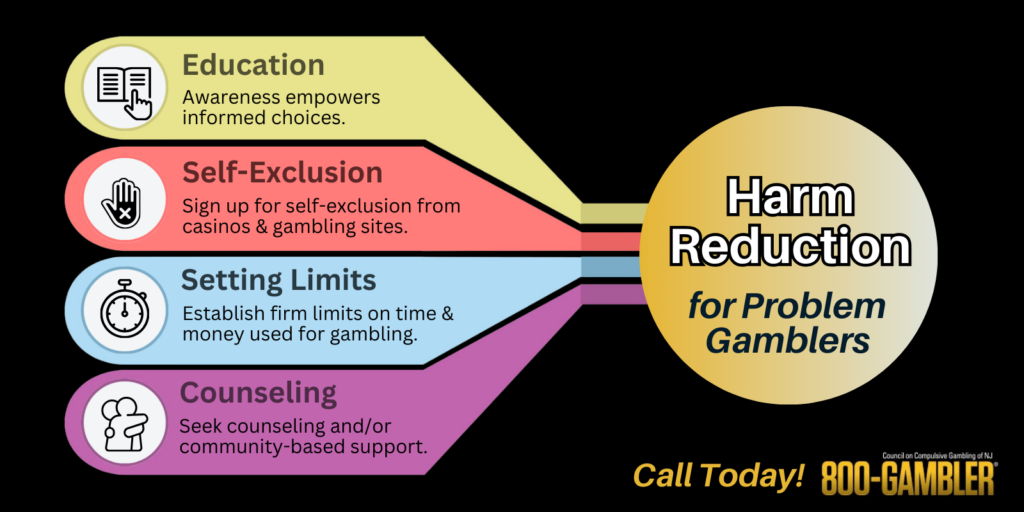Problem gambling, often underestimated in its significance, poses a considerable public health challenge. The impact of gambling harm is not limited to individuals alone; it extends to their families, communities, and society as a whole. It’s a complex issue with multiple risk factors and, consequently, requires a multifaceted approach. One such approach gaining recognition is the incorporation of harm reduction principles into problem gambling recovery. In this article, we’ll explore how this strategy is reshaping the way we address gambling-related problems and why it’s an essential facet of responsible gambling and mental health support.
Understanding the Impact of Problem Gambling
Before delving into harm reduction, it’s crucial to grasp the gravity of the issue. Problem gambling isn’t just a pastime or a harmless hobby; it’s a genuine health issue with profound consequences. Gambling-related harms can range from financial difficulties, strained relationships, and psychological distress to a decline in physical and mental health. The repercussions are far-reaching and often affect not only the individual with the gambling problem but also their loved ones.
The Harm Reduction Approach: A Public Health Perspective
Harm reduction, a strategy traditionally associated with substance use disorders, has been adapted to address the harms stemming from problem gambling. This approach centers on minimizing the adverse consequences of an activity rather than solely focusing on abstinence or elimination. In the context of gambling, harm reduction aims to reduce the negative impact of gambling without necessarily insisting on complete abstinence.
Why Harm Reduction?
Reducing Stigma: One of the significant benefits of a harm reduction approach is that it promotes a non-judgmental and empathetic attitude towards individuals with gambling-related problems. This can encourage more people to seek help without fear of societal judgment.
Meeting People Where They Are: Not everyone with a gambling problem is ready or willing to quit immediately, especially in cases where people have been struggling for years or have become professional gamblers. Harm reduction acknowledges this and offers strategies to help individuals gradually regain control over their gambling habits.
Promoting Responsible Gambling: Harm reduction emphasizes responsible gambling practices, which can be a stepping stone toward recovery. It encourages setting limits, self-exclusion, and seeking help when needed.
The Components of Harm Reduction in Problem Gambling Recovery

Education: Increasing awareness about the risks and potential harms of gambling is a fundamental step. This empowers individuals to make informed choices.
Self-Exclusion: Many jurisdictions offer self-exclusion programs that allow individuals to voluntarily ban themselves from gambling establishments or websites.
Setting Limits: Establishing personal limits on time and money spent gambling can help individuals maintain control.
Support and Counseling: Access to professional support and counseling services, including community resources such as online GA meetings, is vital for those who recognize they have a problem and want to address it.
The Bigger Picture: Mental Health and Problem Gambling
Mental health is closely intertwined with problem gambling. Individuals with gambling-related problems often experience high levels of stress, anxiety, and depression. As such, a holistic approach that combines mental health support and harm reduction strategies can be particularly effective. Addressing both the gambling problem and the associated mental health challenges ensures a more comprehensive and sustainable recovery.
Need Help? Reach Out to 800-GAMBLER Today
Incorporating harm reduction into problem gambling recovery is a vital shift in our approach to this public health issue. It acknowledges the complex nature of gambling problems and offers a more empathetic and pragmatic way to support individuals on their journey to recovery. By reducing stigma, promoting responsible gambling, and providing a range of harm reduction tools, we can better address the multifaceted impact of problem gambling on individuals and society as a whole. If you or someone you know is struggling with problem gambling, remember that help is available, and it’s never too late to seek support and embark on a path to recovery. Call 800-GAMBLER today, and our toll-free, confidential helpline will connect you with the resources you need.



